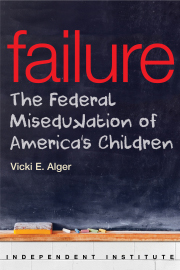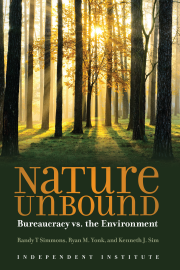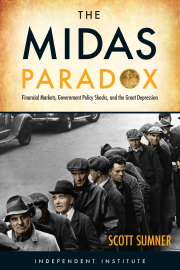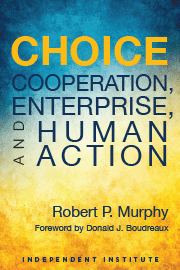Caleb S. Fuller • Friday, September 23, 2022 •
A student of mine asks about annual, mandatory car inspections. In Pennsylvania, they’re required.
In states like Kentucky or Indiana (my home state), they’re not. To my eye, the distribution of cars looks roughly the same. Yes, you’re more likely, in Indiana, to see an outlier that looks something like this:

K. Lloyd Billingsley • Thursday, September 22, 2022 •
On September 12, the 60th anniversary of President Kennedy’s famous “moonshot” speech, Joe Biden proclaimed that “beating cancer is something we can do together and that’s why I’m here today.” Those gathered at the John Fitzgerald Kennedy Presidential Library in Boston, like many across the country, may have been unaware that this was a repeat performance.
“The time has come in America when the same kind of concentrated effort that split the atom and took man to the moon should be turned toward conquering this dread disease,” President Richard Nixon proclaimed in his 1971 State of the Union address. “Let us make a total national commitment to achieve this goal.” On December 23, 1971, President Nixon signed the National Cancer Act, which gave the National Cancer Institute unique autonomy at the National Institutes of Health, with special budgetary authority.
What’s wrong with it?
Craig Eyermann • Wednesday, September 21, 2022 •
President Joe Biden’s student loan cancellation scheme is a very bad fiscal policy. But now, it may soon be at risk of collapse. The President himself put it in jeopardy, thanks in no small part to his 60 Minutes interview that aired on Sunday, September 18, 2022.
William F. Shughart II • Tuesday, September 20, 2022 •
Jack Rakove’s WSJ podcast (“James Madison’s Critique of the Senate Still Holds,” Sept. 16, 2022) is right on the history of the so-called Great Compromise, but wrong in arguing that representation by the states qua states in Congress’s upper chamber is a constitutional flaw.
It can be shown, as James Buchanan and Gordon Tullock do in The Calculus of Consent: Logical Foundations of Constitutional Democracy, that a bicameral legislature whose members vote by simple majority rule is equivalent to requiring a supermajority (two-thirds or three-quarters) for passing bills in a unicameral legislature, but only if the seats in the House and Senate are apportioned on different representational bases. In other words, it is harder for special-interest groups (Madison’s “factions”) to get legislation enacted when they must “buy” majorities in two chambers of unequal size elected from distinctive constituencies than if representatives and senators are beholden essentially to the same electorates, which would be true when seats in both chambers are apportioned based on population.
K. Lloyd Billingsley • Thursday, September 15, 2022 •
“Disgraced former Public Works czar Mohammed Nuru will serve seven years in prison after pleading guilty to a federal fraud charge,” the San Francisco Chronicle reports, “closing one chapter in a corruption scandal that ensnared senior officials and business heavyweights, and shattered the public’s trust in city government.”
As we noted in January, Nuru was a favorite of Willie Brown and worked for his mayoral campaigns. In 2000, Brown hired Nuru as Department of Public Works deputy director of operations, and soon staff complaints rolled in about Nuru flaunting city rules and misusing public funds. In 2011, Nuru took over as DPW boss, and excrement began piling up on San Francisco streets.
The pandemic policies of 2020 flattened economic freedom in the United States.
Peter Jacobsen • Wednesday, September 14, 2022 •
The Fraser Institute’s 2022 Economic Freedom of the World Index report has been released. This year’s report covers the year 2020. The index development was led by Dr. James Gwartney in the late 1980s and early 1990s as a way of measuring economic freedom in each country.
Countries are rated on the basis of several categories and are put in four groups (quartiles) ranging from “most free” to “least free.”
What Could Go Wrong?
Caleb S. Fuller • Monday, September 12, 2022 •
Again?
That’s every economist’s reaction to renewed calls for price controls.
The theory is so airtight, the empirical evidence so overwhelming. The consensus among economists on price controls is impressive, and it stretches back decades.
What’s more, the assumptions required to oppose price controls are so minimal. Economics can’t tell you to favor prosperity and social harmony, but how many people truly don’t?
Mary L. G. Theroux • Sunday, September 11, 2022 •
Everyone above a certain age no doubt well remembers September 11th 21 years ago. I remember it most for the leadership, courage and principle that my husband and Independent’s founder and president, David Theroux, exhibited on the very day. He immediately worked with Independent staffers to craft and post on the Independent.org home page a Statement on the Terrorist Attacks, later refined as a Press Release:
… history teaches that crisis periods produce even greater problems and suffering as the heavy hand of unchecked government power crowds out civil society.
… Americans seek security, but not as an end in itself. We seek security to enjoy the blessings of liberty. Attempts to “trade” liberty for security can only produce neither. Instead, we must achieve security in a manner consistent with a diverse and open society, individual liberty, and the rule of law.
The alleged "learning loss" now being exposed is more reflective of the nature of forced schooling rather than how children actually learn.
Kerry McDonald • Friday, September 9, 2022 •
There are mounting concerns over profound learning loss due to prolonged school closures and remote learning. New data released last week by the US Department of Education reveal that fourth-grade reading and math scores dropped sharply over the past two years.
Fingers are waving regarding who is to blame, but the alleged “learning loss” now being exposed is more reflective of the nature of forced schooling rather than how children actually learn.
The current hullabaloo over pandemic learning loss mirrors the well-worn narrative regarding “summer slide,” in which children allegedly lose knowledge over summer vacation. In 2017, I wrote an article for Boston NPR stating that there’s no such thing as the summer slide.
K. Lloyd Billingsley • Thursday, September 8, 2022 •
More than 50 government officials across a dozen agencies, the Epoch Times reports, were involved in applying pressure to social media companies to censor users. Officials refusing to provide answers include Dr. Anthony Fauci, Biden’s chief medical adviser and director of the National Institute of Allergy and Infectious Diseases (NIAID) since 1984.
The case, Missouri et al v. Biden et al, is now in federal court under judge Terry Doughty. Jenin Younes of the New Civil Liberties Alliance, and an attorney for some of the plaintiffs, notes that Dr. Fauci had “demanded that specific individuals, including two of our clients, Jay Bhattacharya and Martin Kulldorff, be censored on social media.” Dr. Bhattacharya, of Stanford Medical School, and Dr. Kulldorff of Harvard, are co-authors of the Great Barrington Declaration, which took issue with Dr. Fauci on the issue of lockdowns.





























